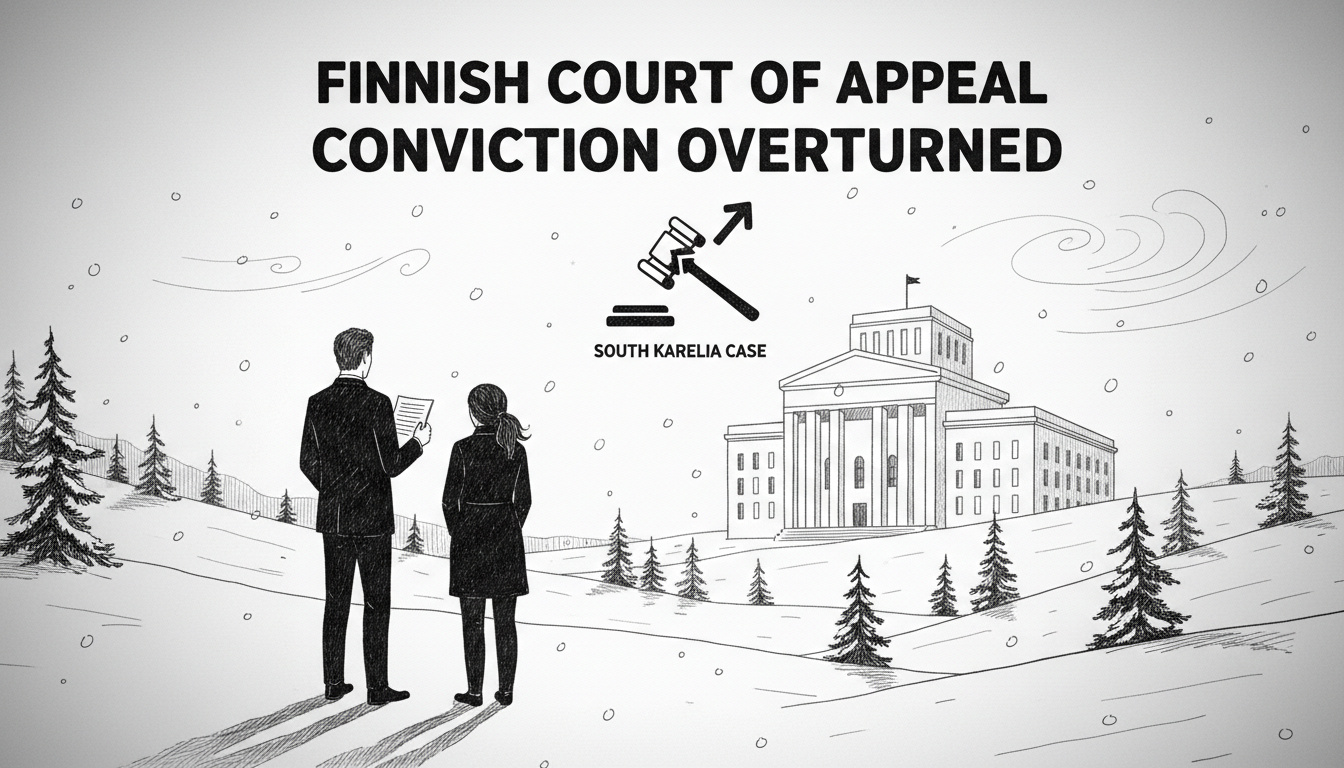The Court of Appeal of Eastern Finland has overturned a rape conviction originally handed down by the South Karelia District Court in early May. The appellate court found insufficient evidence to prove the defendant acted intentionally as described in the charges.
The district court had sentenced the man to one year and four months of conditional imprisonment. It also ordered him to pay compensation to the plaintiff for the alleged crime, which reportedly occurred during the summer of 2017.
The defendant appealed the verdict and requested that the charges and related claims be dismissed. The Court of Appeal heard the same testimony presented in the district court proceedings. It also considered one new piece of written evidence.
This case highlights the rigorous standards of proof required in Finnish sexual offense trials. Finnish courts maintain high thresholds for establishing guilt beyond reasonable doubt. The appeals process serves as a crucial check on lower court decisions.
Finland's legal system operates with district courts handling initial trials and courts of appeal reviewing challenged verdicts. This two-tier approach aims to ensure judicial accuracy and protect defendants' rights. The system reflects Finland's commitment to rule of law and fair trial principles.
The overturned conviction raises questions about evidence evaluation in sexual assault cases. It demonstrates how appellate courts can reach different conclusions based on the same core facts. Legal experts note that such reversals occur when appellate judges interpret evidence standards differently.
International readers should understand that Finnish courts prioritize concrete evidence over circumstantial claims. The burden of proof remains high in criminal cases, particularly for serious offenses. This protects individuals from wrongful convictions but can complicate prosecuting crimes with limited physical evidence.
What happens next in this case? The prosecution must decide whether to appeal to the Supreme Court or close the matter. The defendant remains innocent under Finnish law unless a final conviction is secured. The plaintiff may pursue civil compensation through separate proceedings.
This ruling affects similar cases moving through Finland's judicial pipeline. It reinforces that convictions require clear demonstration of criminal intent. The decision may influence how prosecutors approach future sexual offense charges in the region.
